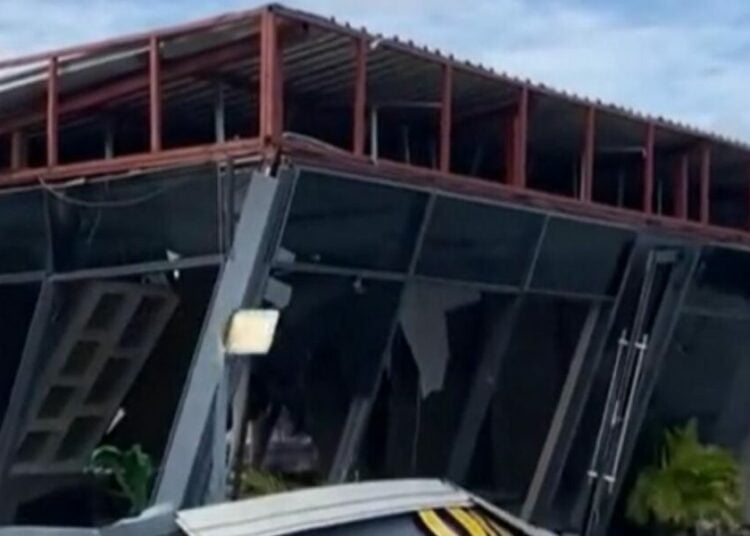The Lagos State Government has reportedly demolished a popular luxury car showroom owned by social media influencer and car dealer, Waris Olayinka Akinwande, widely known as ‘Ola of Lagos’.
The incident, which occurred on Saturday, was first brought to public attention through a viral TikTok video posted by another car dealer, Ibilo, who captured the remains of the demolished property.
The caption read, “Lagos State Government Demolishes OOL Autos. Heavy one today.”
As of press time, the state government had not issued an official statement regarding the demolition, leaving the motive behind the action unconfirmed.
However, widespread speculation on social media suggested that the structure was pulled down because it was allegedly built beneath a high-tension power line in violation of safety and urban planning regulations.
One TikTok user, Adekunle Autoparts, commented, “They demolished it because he built it under a power line.”
Another user, Sisi Noni, expressed mixed feelings about the development, highlighting both the safety risks and the harshness of the government’s approach.
“I’m not trying to sound hateful, but the first time I saw this structure, my eyes got hold of the high tension. But as usual, I felt the country doesn’t send anymore once you have money,” she wrote.
“Building under the high tension is very risky. But at the same time, they should have asked him to relocate — maybe they would have dismantled the structure without destroying it so he can make use of some of those materials in his new site.”
The demolition came amid a broader enforcement drive by the Lagos State Ministry of Environment and Water Resources against illegal constructions across the state.
On the same day, the government also demolished no fewer than 17 houses illegally erected on the Right of Way (RoW) of the Ikota River alignment in the Lekki area.
Commissioner for Environment and Water Resources, Tokunbo Wahab, who led a monitoring and enforcement team to the site, warned residents against activities that endanger the environment or obstruct natural water channels.
“We stopped them then, but we were alerted again recently that the encroachment had resumed aggressively, with attempts to sell to unsuspecting buyers,” Wahab said.
He stressed that the exercise formed part of the state’s broader efforts to reclaim and protect flood-prone areas, adding that offenders behind illegal reclamation and construction activities would be identified and prosecuted.
Recovered evidence from the Lekki site showed several ongoing reclamation projects, sand-filling operations, and partially completed structures built directly on natural waterways, a violation the state said poses serious environmental risks.





